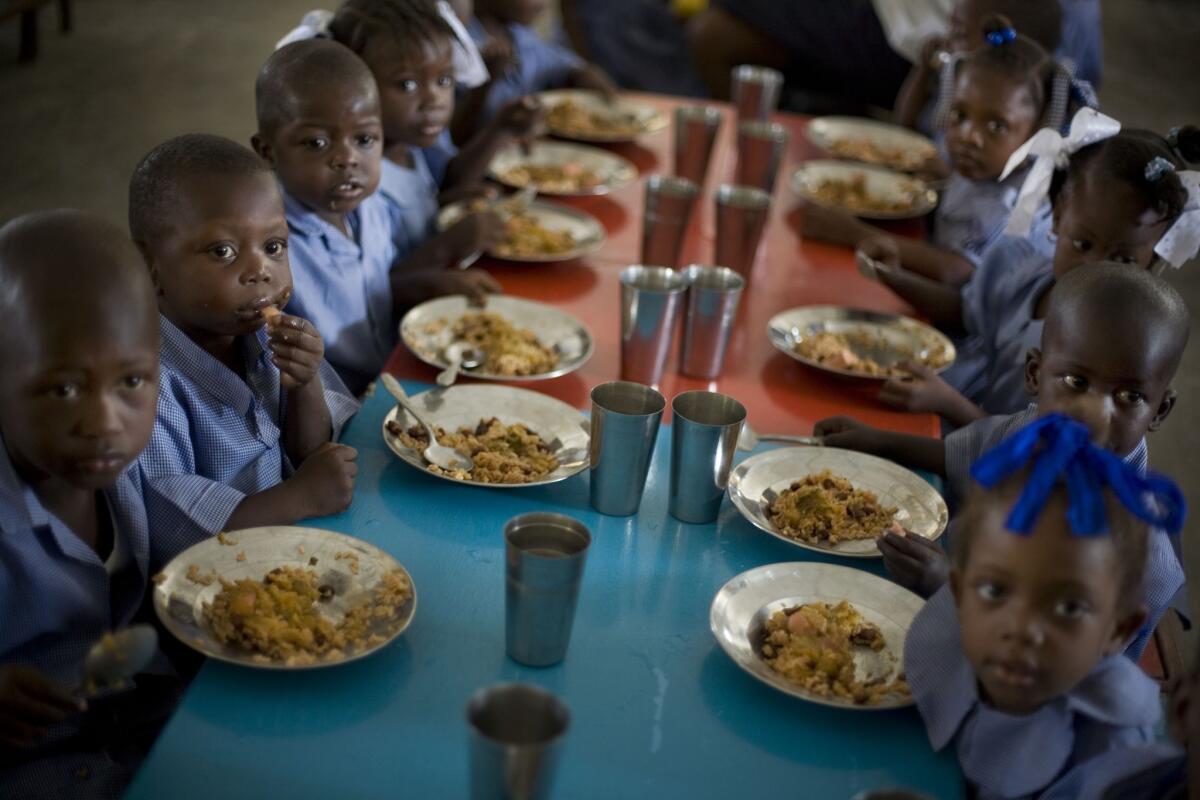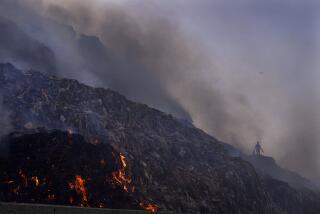Drought compounds food crisis in Haiti

Students have lunch at a school in Gonaives, Haiti, in 2009. The meals are part of a program supported by the U.N. World Food Program.
The number of Haitians who face severe food insecurity has doubled in the last six months as a result of three consecutive years of drought worsened by the global El Niño weather phenomenon, the United Nations World Food Program said this week.
According to the agency, about 3.6 million people — or more than a third of the country’s population — have been driven deeper into poverty and hunger and are struggling to access a reliable supply of food. Of those, 1.5 million are considered “severely food insecure.”
The crisis was compounded by losses in the main harvest of up to 70% in some areas, the agency said. It is a devastating blow for one of the world’s poorest nation’s, where agriculture employs half of working people.
“Without rain for the 2016 spring season, farmers will lose their fourth consecutive harvest on which they normally depend to feed their families,” Wendy Bigham, deputy country director for WFP in Haiti, said in a statement.
A recent study by the U.N. Children’s Fund and the Haitian government found that malnutrition rates had risen above emergency levels in several communities, according to WFP. The anti-hunger agency said it has been distributing food, such as rice, oil, sugar and salt, to about 120,000 Haitians in the worst drought-stricken areas since November.
In addition, almost 500,000 children benefit from a school meals program supported by the agency.
The food emergency comes as a political crisis in Haiti threatens the Caribbean nation’s fragile stability. The country has not had a president since Sunday when Michel Martelly’s term expired and he left office. Various factions have agreed to form an interim government and hold an election in April. Under the accord, a new president would take office on May 14.
In addition to food insecurity, an ongoing cholera outbreak, environmental degradation caused by deforestation and 60,000 displaced people still living in tent camps since a 2010 earthquake devastated Haiti, are among issues that top the list of humanitarian workers’ concerns.
“These are problems that require a strong political will and coordination between government agencies,” said Jessica Pearl, Haiti country director for the humanitarian aid group Mercy Corps. “It’s hard to have a response when you don’t have a functioning government.”
Follow me for the latest in video & multimedia reports
More to Read
Start your day right
Sign up for Essential California for news, features and recommendations from the L.A. Times and beyond in your inbox six days a week.
You may occasionally receive promotional content from the Los Angeles Times.







